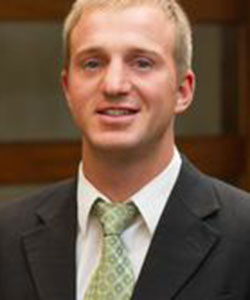 By Courtney Neves for BiolawToday.org.
By Courtney Neves for BiolawToday.org.
Much has been written about the role of Accountable Care Organizations (“ACO’s”) in health care reform, but few of us have a good sense of what exactly these entities are. ACO’s are groups of doctors, hospitals, and other providers who work together to provide more efficient care to patients.[1] These organizations report the amount of Medicare money saved through their efforts, and the government then shares part of the savings with these ACOs. This is the incentive behind the voluntary involvement by these groups of doctors, hospitals, and other providers.
There are three types of ACO programs: The Medicare Shared Savings Program, The Advanced Payment ACO Model, and The Pioneer ACO Model. All three are focused on improving care through more efficient and coordinated treatment. The goal is to provide more attentive care without the duplication of services that often occurs. Such an effort allows these ACOs to reduce the amount of Medicare funds spent, especially with regard to chronically ill patients. Reducing medical errors and improving patient satisfaction are also a priority for these organizations.
A 2015 New England Journal of Medicine article, “Medicare’s Vision for Delivery-System Reform – The Role of ACOs,”[2] explained how the Department for Health and Human Services (“HHS”) intends to tie increasing percentages of Medicare payments to alternative payment models, such as ACOs. To accomplish this, HHS plans to work with private payers, employers, consumers, providers, and states to expand alternative payment models into their already existing programs. The article cited positive statistics showing the increased number of ACOs throughout the nation as well as how much money these coordinated entities are saving the Medicare system. A few of these statistics are listed below.
HHS’s goal is to tie 30% of payments by the end of 2016 and 50% by the end of 2018. Through these efforts Medicare patients can take advantage of these more efficient and less costly organizations. According to actuarial calculations, ACO’s have generated more than $417 million in savings for Medicare. An independent evaluation found savings of $384.2 Million from the Pioneer ACO Model alone. There has been a substantial growth in the number of Medicare ACO’s since 2012, starting at 146 and increasing to 423 in 2015.
The article also indicates how HHS, through the Center of Medicare and Medicaid Services (“CMS”), plans to improve and implement additional programs. The article outlines three steps that CMS is taking in order to meet their goals for 2018 and continue to increase the number of ACOs. The first step is to continue maintaining an ongoing test bed of ACO models through the Center for Medicare and Medicaid Innovation. The second step is that a concrete strategy for expanded successful models should be based on the testing done in through the first step. Finally, the third step is that ACO initiatives require multiple, distinct “tracks” to engage different types of beneficiaries and providers.
ACOs are a cost-saving benefit to the healthcare system. These organizations help government curb Medicare expenses, doctors and hospitals to share in the savings, and patients to enjoy more efficient care.
Courtney Neves is currently a second year law student at the University of Utah S.J. Quinney College of Law. Courtney graduated from Brigham Young University – Provo with a Bachelors and Masters degree in Tax Accounting in 2013. His legal interests include tax and business law as well as health law, as occupations within his immediate family include doctors, nurses, physical therapists, dentists, and pharmacists. As the middle of nine kids raised on a small ranch in Wyoming, Courtney enjoys the wide-open spaces, horses, country dancing, sports, camping, and fiddling.
[1] https://www.cms.gov/Medicare/Medicare-Fee-for-Service-Payment/ACO/index.html?redirect=/aco
[2] “Medicare’s Vision for Delivery-System Reform – The Role of ACOs”; N Engl J Med 2015; 373:987-990, Sept 10, 2015, Hoangmai H. Pham, M.D., M.P.H., John Pilotte, M.H.S., Rahul Rajkumar, M.D., J.D., Elizabeth Richter, M.A., Sean Cavanaugh, M.P.H., and Patrick H. Conway, M.D.
